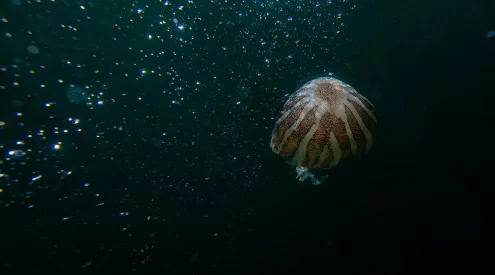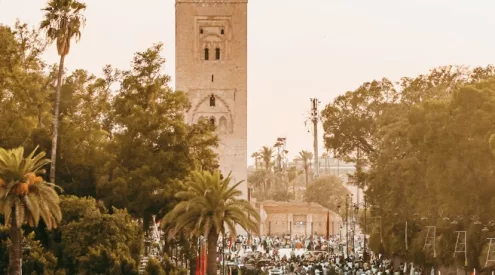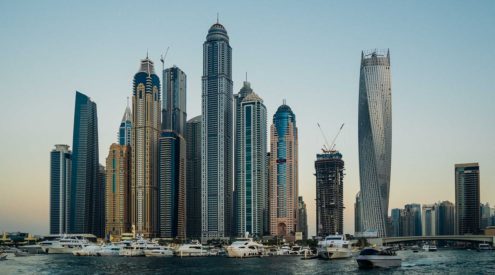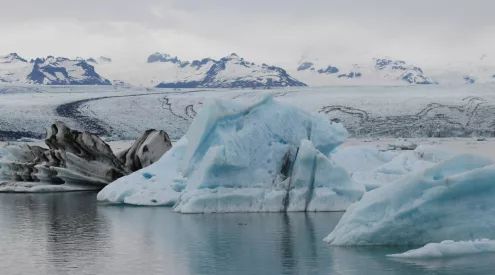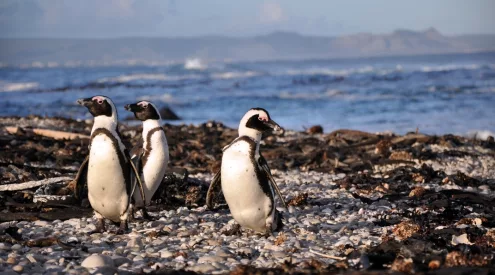These 16 orcas cruising across Plettenberg Bay were first sighted by the marine safari at Ocean Safaris. Young videographer Max Morris, who was on safari with Ocean Blue Adventures, filmed the footage below. These 16 apex predators were the first spotted in the bay since November last year.
Orcas, or killer whales, are seen infrequently in Plettenberg Bay as they prefer the deeper waters of the open ocean outside the bay’s protection, but occasionally wander into shallower waters to hunt or feed. A sighting such as this is always a cause for celebration and interest as the season moves closer to winter, known as Whale Season in Plett. This is one reason the Plett Ocean Festival and associated Marine Science Symposium, now in their second year, are vital to the town’s annual calendar: winter is a time of great abundance of marine life, gentle sunshine and great activity beneath the waves. This year’s festival will take place from 30 June to 9 July 2023, and the symposium will once again be held at the Beacon Island Resort on 30 June, and 1 and 2 July 2023.
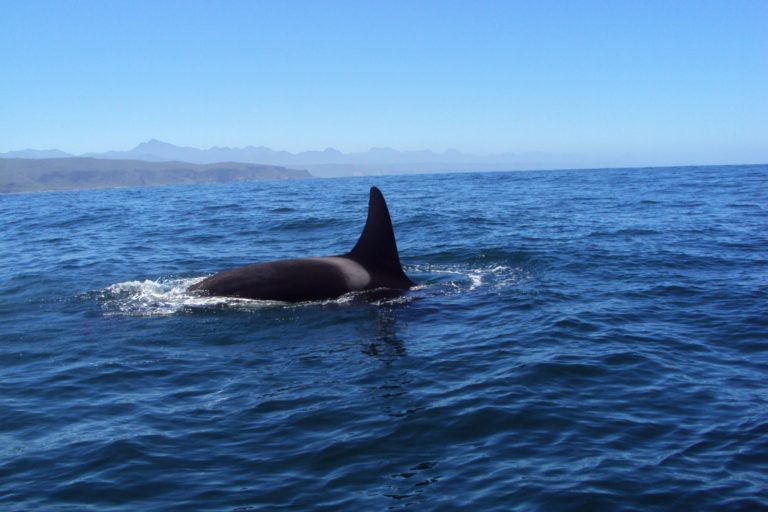
Orca in Plett. Photograph: Janet Middleton
Dr Danielle Conry, who presented on the bay’s killer whale population at the 2022 Marine Science Symposium after recently returning from studying the species on South Africa’s remote Marion Island, wrote in an article for Ocean Blue Adventures: Although the killer whale is currently listed as one species, it consists of a number of populations, many of which are ecologically, genetically and morphologically distinct. In South African waters, killer whales are listed as ‘Least Concern’, and the populations occurring off our shores are almost entirely unknown. Off the South African mainland, there’s evidence for two distinct morphotypes that differ in size, morphometrics, dental wear, diet and possibly pod size. Most of the individuals that are sighted and strand along our coast are believed to be ‘Type A’ killer whales, while a few strandings, and possible sightings, have been of the lesser-known ‘flat-toothed’ morphotype.
Another lesser-known fact about the deeper waters off the Southern Cape coast of South Africa is that the sardines – those of the ‘greatest shoal on earth’ Sardine Run – gather off Plett’s coastline for months before moving along the current northwards into the Eastern Cape, Wild Coast and KwaZulu-Natal, where the continental shelf shifts closer to the shore forcing the sardines into shallower water, enabling natural schooling and creating the most incredible marine hunting spectacle on the planet. But the ocean, bird and marine activity starts months before this annual spectacle: just off Plettenberg Bay as dolphins, whales, and other marine life, gather to begin the great migration providing exceptional opportunities to view Plett’s ocean attractions in all their magnificence. This, coupled with migrating humpback and Southern right whales between June and November, makes this seaside village the perfect place for an action-packed, ocean-themed winter vacation.
See the video below courtesy of Ocean Safaris, Plettenberg Bay:
View this post on Instagram
Follow us on social media for more travel news, inspiration, and guides. You can also tag us to be featured.
TikTok | Instagram | Facebook | Twitter
ALSO READ: First sighting of an albino bottlenose dolphin in Africa

